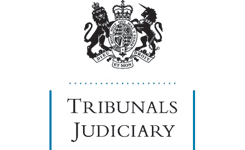|
Notes:
|
Reported as [2011] AACR 14.
Mental health – restriction order – patient convicted of manslaughter relatively unlikely to reoffend – whether adequate reasons given for maintaining restriction order
Human rights – burden of proof – whether tribunal’s approach to discretion in breach of Article 5 or Article 8 of the Convention
Tribunal practice – permission to appeal to Court of Appeal – new issue raised after decision of Upper Tribunal
The appellant was convicted of manslaughter in 1978 and made the subject of a hospital order and a restriction order. In 1986 he was conditionally discharged, but was recalled to hospital in 1997. In 1998 he was again granted a conditional discharge. In 2008 he applied to the First-tier Tribunal for a direction that the restriction order cease to have effect. His application was supported by the mental health team but opposed by the Secretary of State for Justice. The First-tier Tribunal concluded that, although he was relatively unlikely to seriously offend again, there remained a real risk to the public and to himself from his mental disorder with an attendant risk of his recall to hospital and that it was desirable to continue the present conditions, which minimised that risk. It therefore refused to remove the restrictions as it was not satisfied that it was not appropriate for him to remain liable to be recalled to hospital for further treatment, following R (SC) v the Mental Health Review Tribunal and the Secretary of State for Health [2005] EWHC 17 (Admin); [2005] MHLR 31 as to the correct approach to its discretion under section 75(3) of the Mental Health Act 1983. The appellant appealed to the Upper Tribunal on the ground that the First-tier Tribunal had given inadequate reasons for its decision, given the support of the mental health team. The Upper Tribunal judge rejected that contention, holding that the First-tier Tribunal had had the relevant criteria in mind and had properly had regard to the appellant’s vulnerabilities and the seriousness of the offences of which he had been convicted, but granted the appellant permission to appeal to the Court of Appeal. Before the Court of Appeal it was argued for the appellant for the first time that, in the light of R (H) v Mental Health Review Tribunal, North and East London Region and the Secretary of State for Health [2001] EWCA Civ 415 (Admin); [2002] QB 1, SC had been wrongly decided in respect of section 75(3) of the Mental Health Act 1983 because it was contrary to the European Convention on Human Rights for the burden of proof under the Act to be on a psychiatric patient.
Held, dismissing the appeal, that:
1. in H the Court of Appeal had held that the test in the form in which it was then enacted in section 72 of the Act, as applied by section 73 to restricted patients, was incompatible with Article 5(1) and (4) of the Convention because the patient would not be discharged unless the tribunal was satisfied that he was not suffering from a mental condition which made it appropriate for him to be liable to be detained and sections 72 and 73 had been amended in response, but in a section 75(3) case Article 5 would not be engaged unless and until the appellant were recalled (paragraphs 23 to 25);
2. assuming that the conditions imposed on a conditional discharge were capable of amounting to an interference with a patient’s private life for the purposes of Article 8.1, it was neither unfair, nor in any way disproportionate or unnecessary, where a patient is subject to an order made by a competent court after a criminal trial, to require him to satisfy the First-tier Tribunal that the order should cease to have effect (paragraphs 26 to 28);
3. when considering applications under section 75(3), the First-tier Tribunal is not concerned with finding facts which are capable of exact demonstration, but rather with a process of judgment, evaluation and assessment and, while the burden of proof has a potential part to play in that process, the tribunal generally should not need to have specific regard to any burden of proof: R (N) v Mental Health Review Tribunal (Northern Region) [2005] EWCA Civ 1605 (paragraph 29);
4. the First-tier Tribunal was entitled to disagree with the conclusion of the professionally qualified witnesses and, bearing in mind the gravity of the index offences, the circumstances leading to the appellant’s recall in 1997, and the fact that he still suffered from a mental disorder requiring psychiatric support, the fact that it could, at most, be said that he was “relatively unlikely to seriously offend again” was not sufficient to persuade the tribunal that there was no longer a real risk to the public with an attendant risk of recall (paragraphs 30 to 32);
5. particular care should be exercised by the Upper Tribunal before granting permission to appeal on a ground that was not raised below and, if it does consider it appropriate to grant permission to appeal to the Court of Appeal because it is satisfied that one or more of the grounds of appeal raises an important point of principle or practice, it should carefully consider whether the grant of permission should be limited to that ground or grounds and consideration should also be given to eliciting a response from the other party/parties before granting permission (paragraphs 36 and 37).
|
